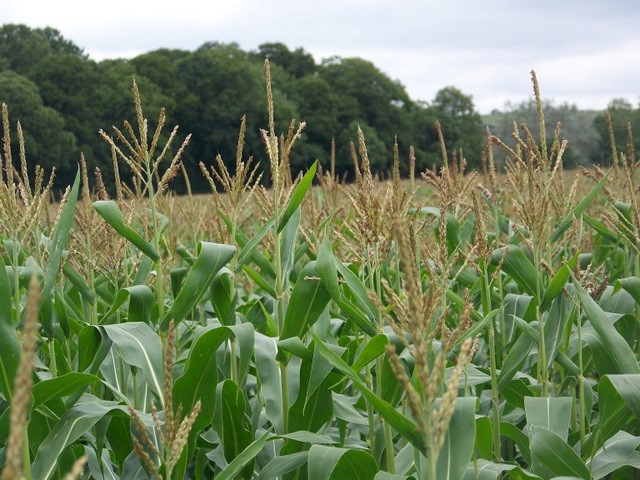
- Teacher: INGABIRE Veronique
This module describes the skills and knowledge required to prepare preliminary
activities for an Animal care technician, identify materials, tools and equipment
related to diagnosis and drug administration. It is intended for learners who have
successfully completed ordinary level, level II in animal health and its equivalent
and pursuing TVET level III and other related qualification. After that the trainees
will be able to use them, examine livestock diseases, take some types of samples
like feces, urine, milk, blood, pus, scabs, and use veterinary drugs after diagnosis
or in livestock diseases prevention. This module describes the process for using
tools, equipment and materials in different veterinary activities.
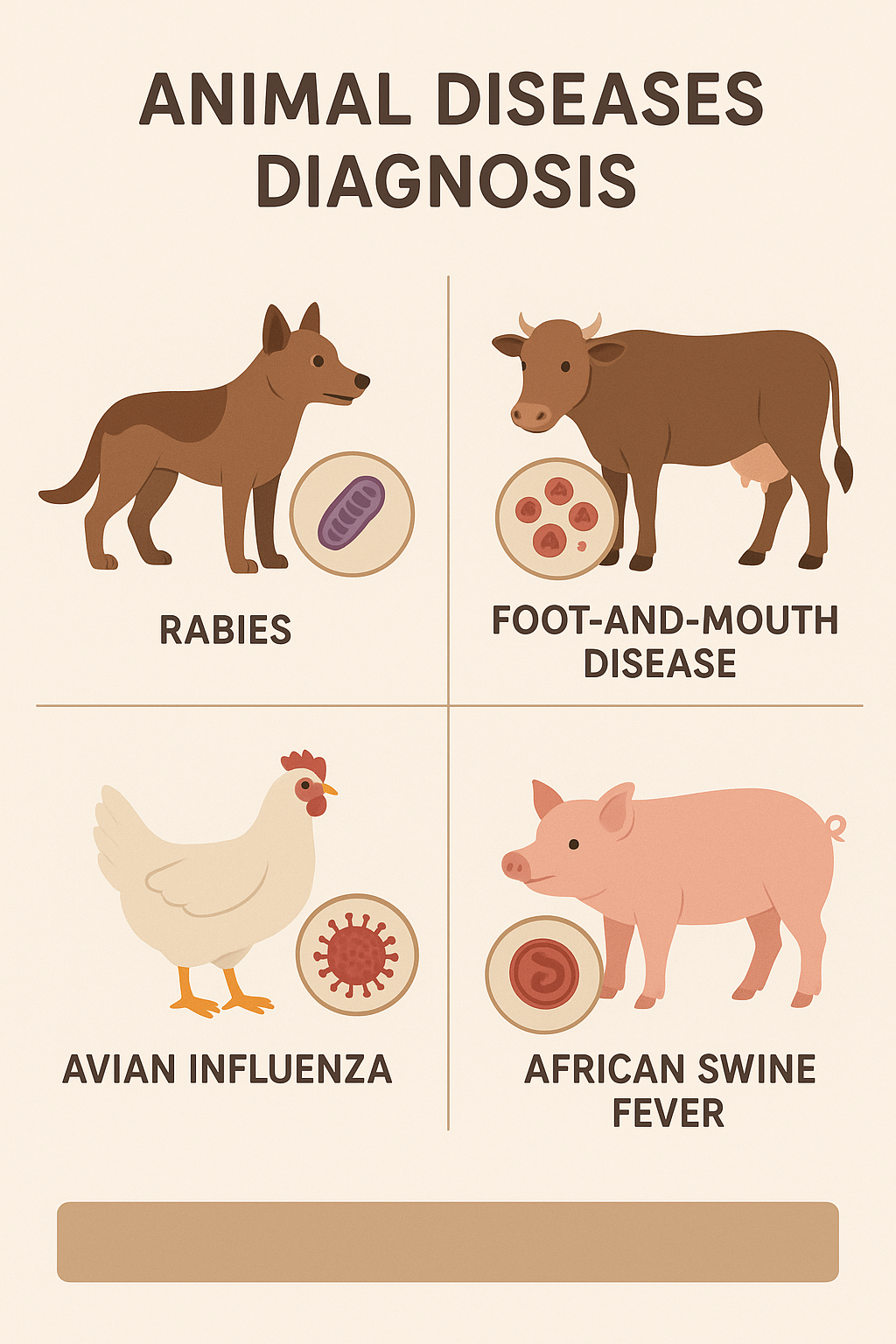
- Teacher: NIYONZIMA Fiston
This module covers the knowledge, skills and attitudes required to properly
prepare and distribute feed’s concentrates to domestic animals. It is intended
for learners who have successfully completed ordinary level, level II in animal
health or its equivalent and pursuing TVET level III in animal health or other
related qualification. Upon completion of this module, the trainee will be able
to: select animal’s feed ingredients, prepare animal’s feeds rations, perform
feeds concentrates preparation and conservation, distribute feeds and water to
animals
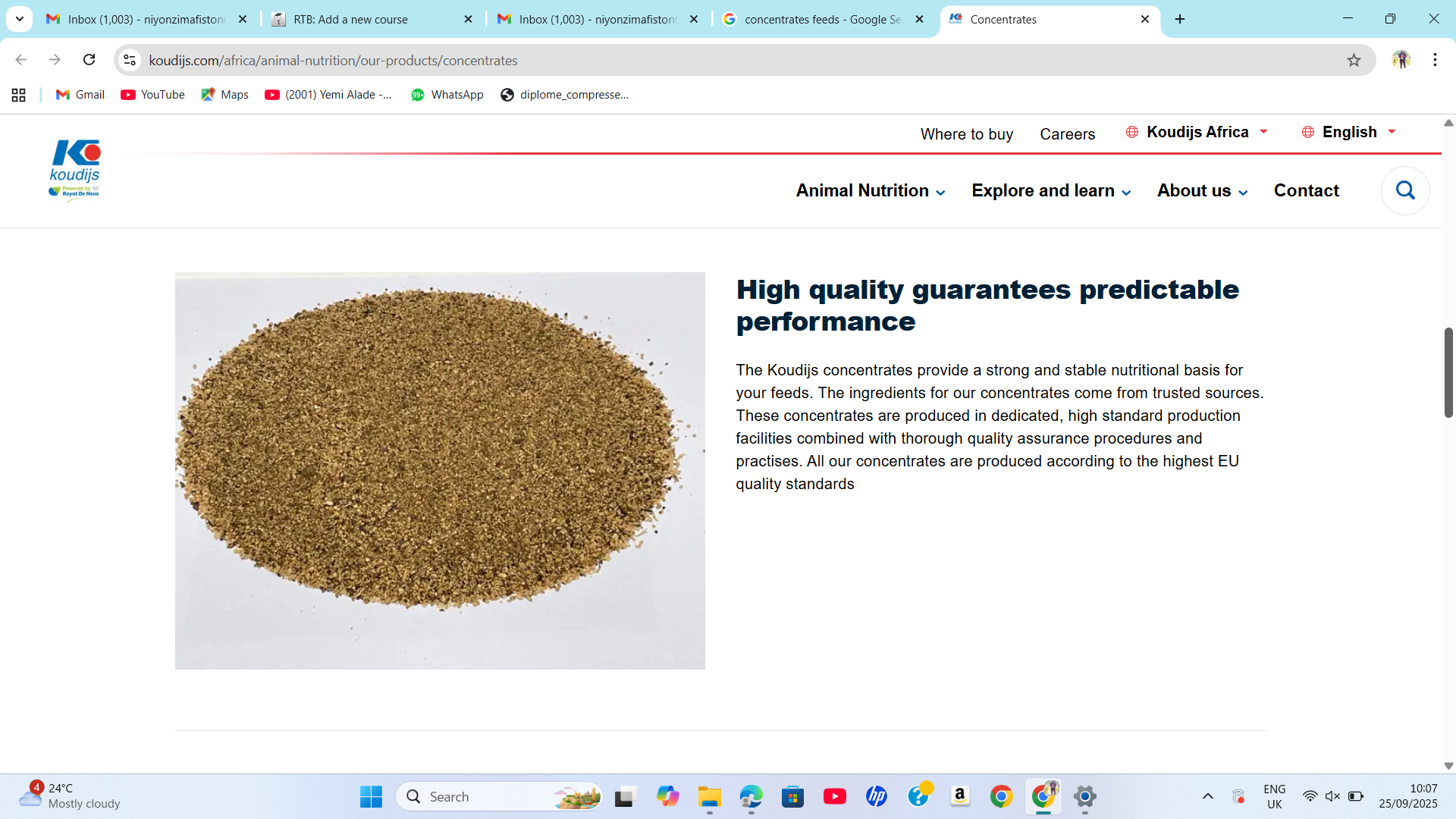
- Teacher: NIYONZIMA Fiston
This module covers the knowledge, skills and attitudes required to prevent diseases for the following species:
cow, sheep, goat, pig, poultry, rabbit, dog and cat. The workplace in which this competence may be applied
range from veterinary clinics, animal housings/shelters, farms, customs services to slaughterhouses. It’s a
prerequisite for all the specific modules of the qualification involving the manipulation and treatment of the
different species mentioned above. Upon completion of this module, the trainee will be able to: Monitor
physical conditions of animal housing; Restrain animals for veterinary intervention; Perform animal general
examination; Use antiparasitic drugs for disease prevention.

- Teacher: INGABIRE Veronique
This module describes the skills and knowledge required to perform minor surgery on animals without supervision, . Upon completion of the module, you will be able to perform injections, perform wound and abscess treatment, execute male castration, perform dehorning, apply hoof trimming techniques, perform livestock caudectomy, Perform trocarisation.
The module content include the course presentation and short notes which will help you to navigate through the module, a self-evaluation will be provided for every presentation to assess your understanding on what you will be reading.
Thank you and welcome to this module.
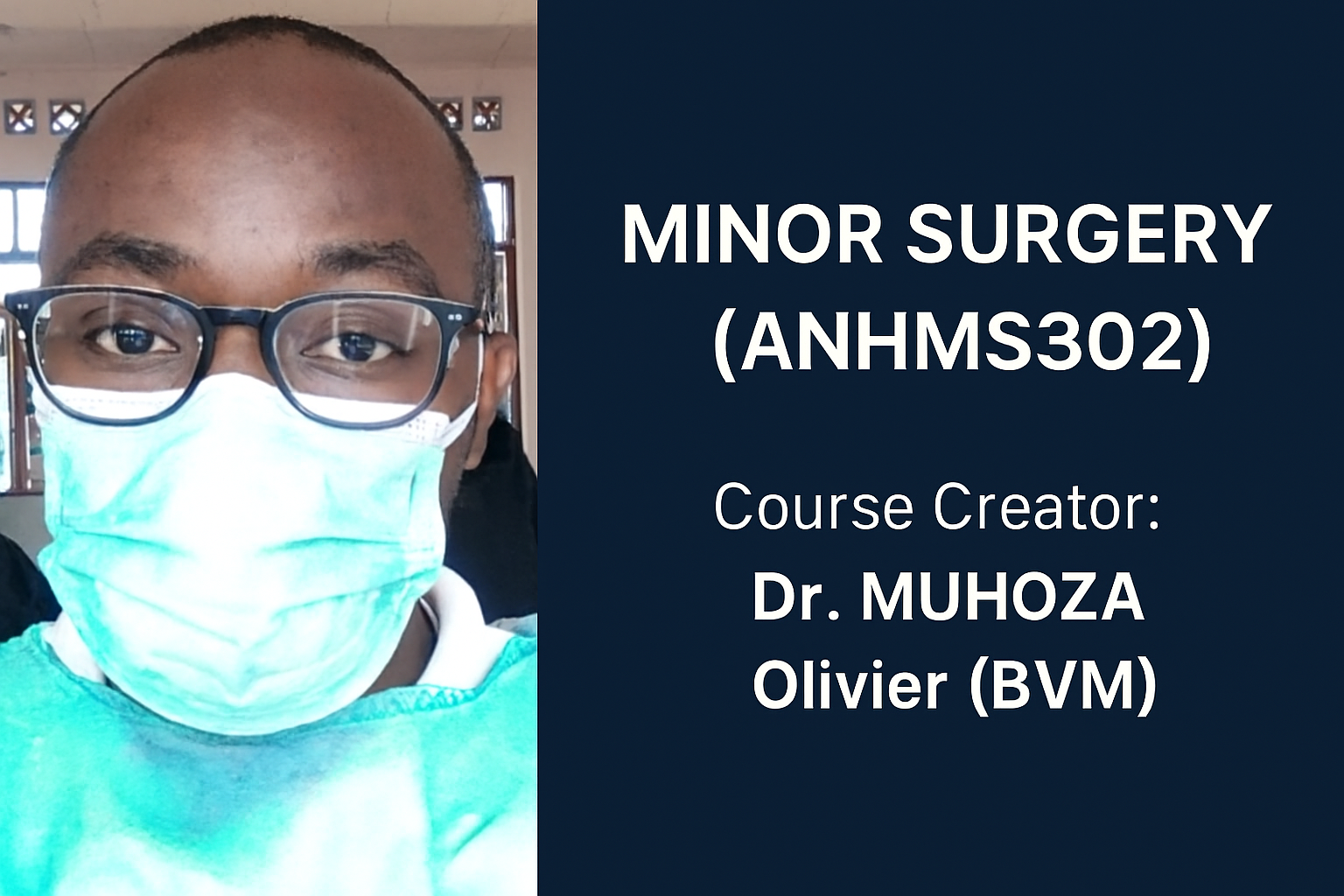
- Teacher: Olivier MUHOZA
This module covers the knowledge, skills and attitudes required to prepare workplace for veterinary intervention. Indeed, any veterinary activity involves a proper preparation of workplace.
So, this competence is very important for the Animal care technician training, and it is a prerequisite for all the specific modules of the qualification involving the manipulation and treatment of the different animal species. It is intended for learners who have successfully completed ordinary level, level II in animal health or its equivalent and pursuing TVET level III and related qualification.
Upon completion of this module, you will be able to:
Identify and store veterinary drugs according to their therapeutic function; Identify and store veterinary instruments and equipment according to their intended use; Clean and sanitise workplace, instruments and equipment and perform proper waste disposal.

- Teacher: Rene Heritier UWURUKUNDO
This module describes the skills, knowledge and attitude to be acquired by the learner to perform the domestic animal body description. The main contents of the module will help to describe the Animal body morphology using appropriate directional terms and planes. The module will also help to describe the body apparatus that makes the deep aspect of the animal body, thus this will lead to an assessment of the anatomo-physiological parameters of the main functions at the end of the module. A self-evaluation short quiz will provided during the presentation to evaluate your understanding regarding the contents of the module.
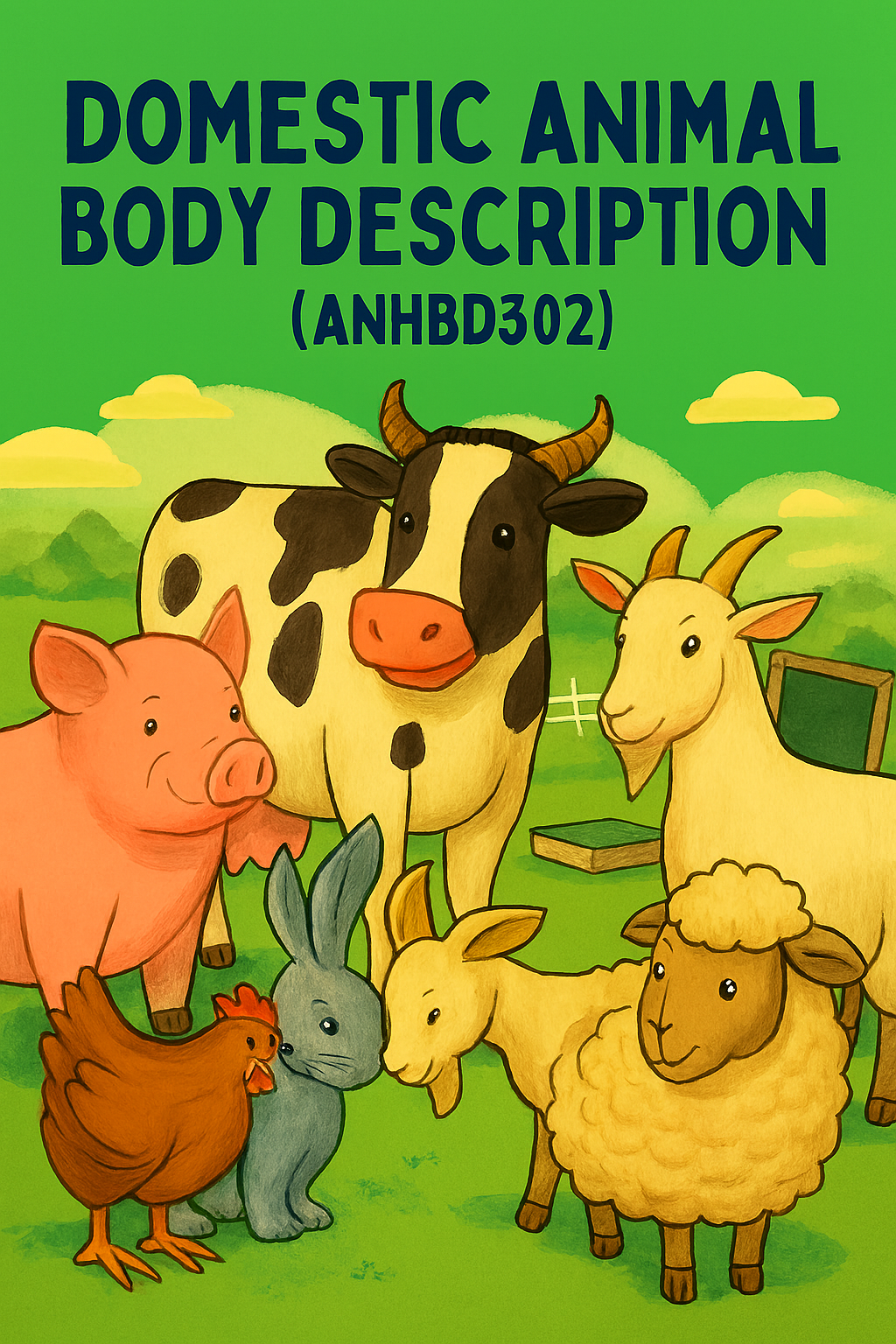
- Teacher: Olivier MUHOZA
This module covers the knowledge, skills and attitudes required to properly
perform ruminant farming of domestic animals.is intended for learners who
have successfully completed nine years’ basic education level II in ordinary level
or its equivalent and pursuing TVET level III in animal health or other related
qualification. Upon completion of this module, the trainee will be able to:
Identify ruminant breeds, Perform site and materials selection for ruminant
shelters,
Design ruminant shelters, Manage ruminant reproduction, Feed ruminants

- Teacher: Illuminee BARAKAGWIRA
